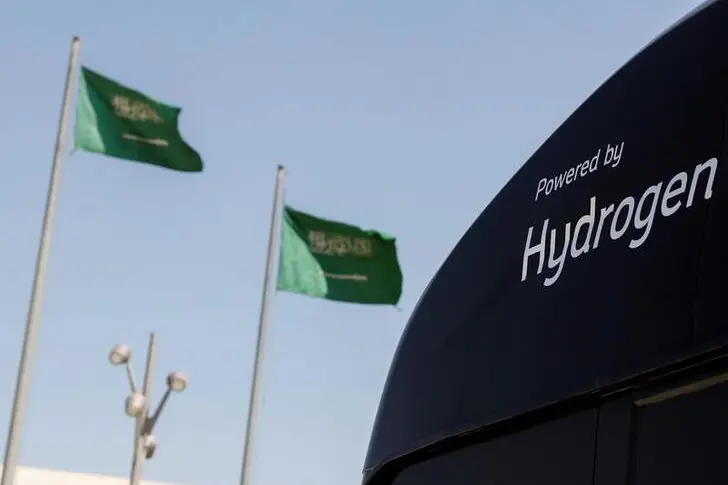PHOTO
It was recently announced that a clean hydrocarbon technology solutions fund would be launched by the Middle East Green Initiative being spearheaded by Saudi Arabia. The fund will finance technology solutions to improve hydrocarbon infrastructure which could reduce emissions by more than 10 percent by 2030.
While the details of the fund are not yet fully known, it has the potential to include a broad range of clean hydrocarbon technologies that are related to recycling, renewable energy, digitization, green transportation, and more.
The fund can address technologies with the most potential and return, such as carbon capture and storage, conversion of heavy oil to hydrogen, and other potential technologies.
The world needs to cooperate to develop the required technologies that offer timely and affordable climate change solutions. We should not forget the fact that there are still 1 billion people without access to electricity and modern energy sources.
While energy transition to cleaner fuel will take time, fossil fuels presently provide about 70 percent of global energy needs. Therefore, any investment in making hydrocarbons cleaner and greener is a step in the right direction.
Clean hydrocarbon technologies can play a key role in achieving a circular carbon economy and meeting climate targets.
But collaboration between the hydrocarbon institutions in the value chain and the scientific community is required in order to make fossil fuels greener while the world makes advances in its energy transition plans.
Countries like Saudi Arabia can take the lead in much of this research and deployment process through its research arms — KAPSARC and KAUST for example — and so can Saudi Aramco through its Advanced Research Center.
The deployment of these technologies, however, will need money. So the news that a clean hydrocarbon technology solutions fund dedicated to improving hydrocarbon infrastructure to reduce emissions is very much welcome news. This fund will complement other efforts by regional banks and institutions on issues of sustainability.
For example, the Saudi British Bank announced last week that it was launching a green deposit product that would allow corporate clients to deposit their money toward green energy initiatives that may include renewable energy and climate change adaptation.
HSBC Saudi Arabia last year launched its environmental initiative investment fund: HSBC Global Equity Climate Change Fund. It offers investors exposure to renewable energy, clean transport, sustainable water management, and climate change adaptation.
The Kuwait Investment Authority, which manages the country’s $700 billion wealth fund, announced during the Saudi Green Initiative Summit last year that it would invest in the Saudi Green Initiative.
These plans, and others, by local and regional financial institutions to support global efforts to reduce the impact of climate change are a clear demonstration of their commitment to support sustainability objectives under Saudi Arabia’s Vision 2030.
The Saudi Green Initiative goal is to cut carbon emissions to net zero by 2060 and to lower the Kingdom’s carbon emissions by 278 million tons a year by 2030.
Saudi Arabia intends to increase the amount of energy generated from renewable sources to 50 percent by 2030 and raise the percentage of protected areas to more than 30 percent of the country’s total land area.
It is also working with its Gulf Cooperation Council and Middle Eastern neighbors to combat climate change through planting 50 billion trees across the region and reducing carbon emissions from hydrocarbon production to 10 percent of total global emissions.
It is also important to note that Saudi Arabia and other oil and gas producers are leading the research and deployment of different hydrocarbon technology solutions such as carbon capture use and storage, also referred to as CCUS, along with hydrogen which can contribute significantly to reduced emissions.
CCUS in particular is an important technology that can be further researched and deployed by oil and gas producers to make it part of the energy transition solution platform.
This technology, which has not been widely deployed, can reduce carbon dioxide emissions from oil and gas producing facilities, power plants, and other industrial activities. CCUS can be part of the energy transition solution and can help to provide energy security by securing energy diversity and extending the life of existing infrastructure.
Energy transition is real, but it will take time to be put into place. The world cannot abandon the present energy system for another by a flip of a switch. It must be an orderly transition with minimum disruption or damaging impact to the global economy and the well-being of its inhabitants.
There is a need to have a balanced approach to climate actions to guarantee that energy security and global economic stability are not interrupted. Developing cleaner hydrocarbon technologies further, while also supporting renewable energy and green energy solutions, is the way to go.
Copyright: Arab News © 2022 All rights reserved. Provided by SyndiGate Media Inc. (Syndigate.info).





















